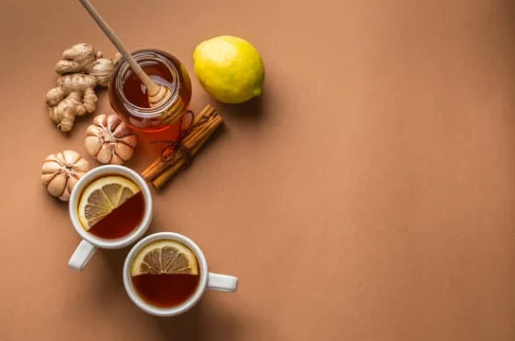If you're a frequent visitor to Healthify, why not share our site with a friend? Don't forget you can also browse Healthify without using your phone data.
Cold and flu medicines for adults
Key points about cold and flu medicines
- Cold and flu medicines don't cure your cold or flu but may help to ease your symptoms.
- If you have cold or flu symptoms it's important that you get tested for COVID-19.
- If you test positive, or think you might have COVID-19 and need medicines for your symptoms, ask friends or whānau to go to the pharmacy to get medicines for you rather than going in yourself.

There are many cold and flu medicines available from supermarkets and pharmacies.
| Examples of cold and flu medicines |
|
|---|---|
|
|
These medicines don't cure your cold or flu but aim to ease your symptoms while your immune system fights off the viral infection. The main symptoms of a common cold are feeling generally unwell and may also include:
- Congested, blocked or stuffy nose: These may be eased by a decongestant. Decongestants are available as tablets or capsules or a nasal spray. Read more about decongestants below. Saline (salt water) nasal sprays and drops can be used for a blocked nose, although there is limited evidence that they work. See saline nasal sprays, drops and rinses.
- Runny nose, sneezing and watery eyes: Antihistamines may help to dry up a runny nose and reduce sneezing in some people. Read more about antihistamines below,
- Fever, headache or body aches: These may be eased by paracetamol and ibuprofen. Read more about paracetamol and ibuprofen below,
- Sore throat: Sore throat products are available as lozenges, sprays or gargles. Some have anaesthetics (numbing agents) to provide temporary relief from sore throat. Most sore throat products can be used every 2 to 3 hours. Some lozenges have a lot of sugar in them and may not be suitable for people with diabetes. Read more about medicines for a sore throat.
- Cough: This can be either a dry, hacking cough or a wet cough with mucus or sputum. Cold symptoms usually get worse over 2 to 3 days and then gradually clear. However, the cough may carry on for up to 3 weeks after the infection has gone. This is because the infection can cause swelling (inflammation) in the airways, which can take a while to settle. There is no good evidence that cough medicines do help and products containing dextromethorphan and pholcodine are no longer available in New Zealand, due to safety concerns. Read more about cough medicines.
The information on this page is about cold and flu medicines for adults. For information on children, see cough and cold medicines for children.
Cold and flu medicines often contain many ingredients.
Cold and flu medicines often contain many ingredients that aim to do different things, such as clearing your nose or chest, relieving pain and discomfort or reducing the urge to cough. Choosing a suitable medicine will depend on your symptoms, and any health conditions you may have. If you have any other health conditions, or are taking other medicines, always ask your pharmacist before taking cold and flu medicines. Some products may not be suitable for you. Also read more about medicines for cough.
Ingredients commonly found in cold and flu products |
|
Paracetamol
|
|
Ibuprofen
|
|
Decongestants
|
|
Antihistamines
|
Always read the packaging carefully and follow the instructions
The dose of the different cold and flu medicines will be different, depending on the product. They are available as capsules, tablets, liquid or as a powder that you mix in water. Follow the directions on the label or the packaging. It will tell you how much to take, how often to take it, and any special instructions. Ask your pharmacist for advice, if you have any questions.
Some cold and flu medicines may make you drowsy
Some cold and flu medicines have a day and night combination. The night doses may make you drowsy. The day doses are usually non-drowsy. However, be careful when driving or using tools until you know how this medicine affects you. Limit alcohol, or don't drink it at all, if you're taking these medicines. Read more about driving and medicines.
Many native plants in Aotearoa New Zealand are used to treat a variety of conditions including colds. Below are some examples.
- Kumarahou (Gumdiggers soap): Leaves and infusion for coughs and colds.
- Manuka and Kanuka (tea tree): Leaves, infusion and gum for coughs.
Read more about using rongoā Māori safely.
Natural remedies like vitamin C and echinacea are marketed for the treatment and prevention of colds, but the evidence to support them is weak. 
Image credit: Canva
Vitamin C (ascorbic acid)
For most people, vitamin C doesn't prevent colds and only slightly reduces their length and severity. Vitamin C is generally considered safe, but high doses can cause stomach problems such as diarrhoea (runny poo), nausea (feeling sick) and stomach cramps.
Echinacea
Echinacea is marketed for the relief of symptoms of cold and flu, eg, sore throat, runny nose and cough. Although there are some echinacea products that are more effective than placebo (no active treatment) for treating colds, the overall evidence is weak. Read about echinacea.
Garlic
Garlic is thought to have properties that fight off some viruses (eg, those causing the common cold). There’s not enough evidence to show whether garlic is actually helpful for colds. Garlic is probably safe for most people in the amounts usually eaten in foods but it can interact with some medicines so check with your healthcare provider whether it is safe for you.
Brochures
5 questions to ask about your medications(external link) Health Quality and Safety Commission, NZ, 2019 English(external link), te reo Māori(external link)
References
- Cold season – managing without antibiotics(external link) BPAC, NZ, 2018
- Cold season in primary care(external link) BPAC, NZ, 2013
- Demystifying Rongoā Māori – traditional Māori healing(external link) BPAC, NZ, 2008
- The Common Cold and Complementary Health Approaches(external link) NIH National Centre for Complementary and Integrative Health, US, 2020
Brochures

Medicines and side effects
Healthify He Puna Waiora, NZ, 2024

Health Quality and Safety Commission, NZ, 2019 English, te reo Māori
Credits: Sandra Ponen, Pharmacist, Healthify He Puna Waiora. Healthify is brought to you by Health Navigator Charitable Trust.
Reviewed by: Angela Lambie, Pharmacist, Auckland
Last reviewed:





